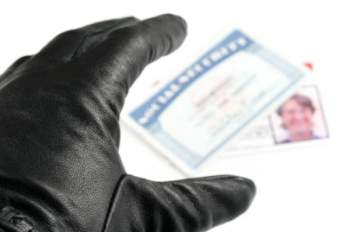
7 Ways to Stop Identity Theft

Identity theft statistics show that this crime is growing at a staggering rate and your privacy, as well as quality of life is in danger. When you realize your identity has been stolen, contact an identity theft lawyer to acquire legal advice and assistance.
STEP 1 Secure your Business or Home with Locks and Alarms:
Although a simple set, the installment of locks and alarms on your premises will deter criminals from breaking into your business or place of residence. The installment of these security measures will impede criminals from accessing your personal records or information stored on your computer. The installment of deadbolts on your external doors, alarm systems (monitored by a security company) and the installment of security films, screens, or bars on exposed windows will prevent thieves from accessing your personal information.
STEP 2 Keep your Personal Records in a Safe:
By storing your tangible records (including customer records and other financial data on paper) in safes or secured areas, you are limiting their exposure and impeding identity thieves from accessing the information. If you do not feel comfortable purchasing safe or have trouble finding storage for a bulky unit, you should store your personal information in a security deposit box at your local bank.
STEP 3 Shred your Documents:
All business records personal information containing financial numbers should never be tossed into the trash without being shredded first. If the documents aren’t shredded, a plethora of criminals and identity thieves can access the information copied on bills, financial statements, or personal documents. Numerous cases of identity theft result from mail services; anything that contains your name, address, or financial information must be shredded before they are discarded.
STEP 4 Limit Access to your Personal Computers:
All websites and online information must be protected through a unique and preferably lengthy personal password. Common passwords, such as birthdays or names, are susceptible to compromise; limit an identity thief’s ability to access your personal and financial information by utilizing a unique password.
STEP 5 Protect your Computer from Hackers:
Identity thieves, to access personal and financial information, hack into company databases and networks to usurp identities. All computers that contain financial or personal information should be protected by firewalls. These systems will help impede intruders by shutting out unauthorized users. Firewalls may be purchased at any computer store, online or in person. Additionally, a business owner may install a small router, which will contain numerous ports all blocked by firewalls to supply the user with another mechanism to dissuade identity thieves.
STEP 6 Be cautious of the Internet:
Purchasing items on the Internet through a credit card or checking account must be placed with caution; a consumer must ensure that the site they are accessing and utilizing is a secured site. Aside from various dangers, such as Spyware and viruses, unsecured sites may deliver your personal information to third parties, who in turn may usurp your information to commit egregious crimes.
STEP 7 Avoid Broadcasting Personal Information
When making purchases at retail stores or online, your personal information is often broadcasted or made tangible to various agents or other customers in the store. Although sometimes this is unavoidable, be sure to limit your personal information from exposure by developing an acute awareness. For instance, when using ATMs be sure to end your session after you have completed your transaction and close your windows or log-off after you have mad an online purchase.
NEXT: Network Security





















